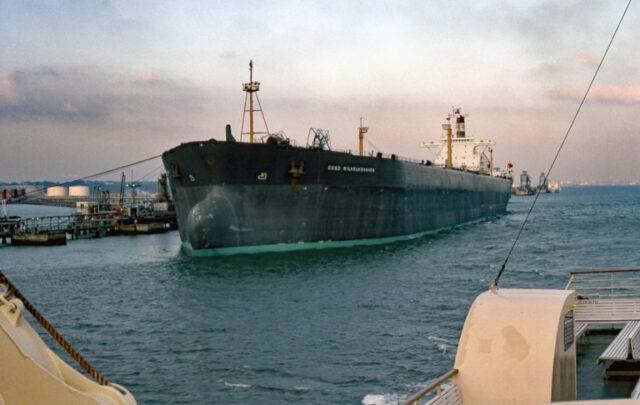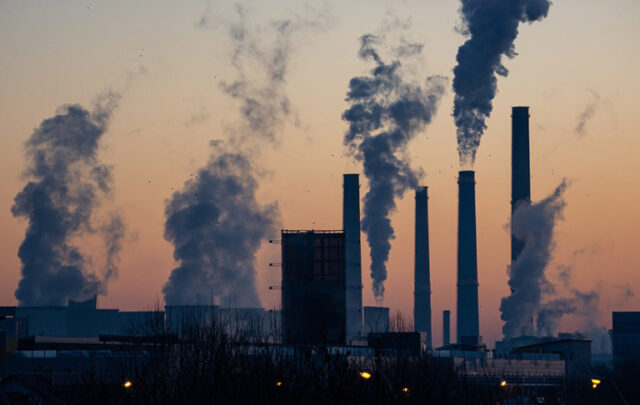Click on the headline (link) for the full text.
Many more articles are available through the Energy Bulletin homepage
The End of the World as You Know It
…and the Rise of the New Energy World Order
Michael T. Klare, TomDispatch
Oil at $110 a barrel. Gasoline at $3.35 (or more) per gallon. Diesel fuel at $4 per gallon. Independent truckers forced off the road. Home heating oil rising to unconscionable price levels. Jet fuel so expensive that three low-cost airlines stopped flying in the past few weeks. This is just a taste of the latest energy news, signaling a profound change in how all of us, in this country and around the world, are going to live — trends that, so far as anyone can predict, will only become more pronounced as energy supplies dwindle and the global struggle over their allocation intensifies.
Energy of all sorts was once hugely abundant, making possible the worldwide economic expansion of the past six decades. This expansion benefited the United States above all — along with its “First World” allies in Europe and the Pacific. Recently, however, a select group of former “Third World” countries — China and India in particular — have sought to participate in this energy bonanza by industrializing their economies and selling a wide range of goods to international markets. This, in turn, has led to an unprecedented spurt in global energy consumption
… What this adds up to is simple and sobering: the end of the world as you’ve known it. In the new, energy-centric world we have all now entered, the price of oil will dominate our lives and power will reside in the hands of those who control its global distribution.
In this new world order, energy will govern our lives in new ways and on a daily basis. It will determine when, and for what purposes, we use our cars; how high (or low) we turn our thermostats; when, where, or even if, we travel; increasingly, what foods we eat (given that the price of producing and distributing many meats and vegetables is profoundly affected by the cost of oil or the allure of growing corn for ethanol); for some of us, where to live; for others, what businesses we engage in; for all of us, when and under what circumstances we go to war or avoid foreign entanglements that could end in war.
This leads to a final observation: The most pressing decision facing the next president and Congress may be how best to accelerate the transition from a fossil-fuel-based energy system to a system based on climate-friendly energy alternatives.
(15 April 2008)
Introduction by editor Tom Engelhardt.
A summary of current books on America’s role: After America: Is the West being overtaken by the rest? (New Yorker). Energy supplies are not mentioned. -BA
Iraq opens door to foreign contracts at major oil fields
Damien McElroy, Telegraph (UK)
Foreign oil companies are poised to enter Iraq later this month after Baghdad signalled it was prepared to sign five oil field services agreements covering its biggest fields.
Five years since the US and Britain toppled Saddam Hussein’s dictatorship, there have been few forays by oil’s major players into Iraq, even though the country accounts for almost 10pc of world reserves.
A violent insurgency forced most oil companies to keep executives responsible for Iraq outside the country. Most are based in the Gulf.
Despite lack of foreign involvement in oil production, Iraq has returned to pre-war export levels of 2.5m barrels a day.
The two-year service contracts that have been negotiated would see British, American and Australian oil companies supply equipment and expertise that would boost output by hundreds of thousands of barrels at each field.
(15 April 2008)
Paraguay hopeful eyes energy export prices
Jude Webber, Financial Times
Sitting in the sparse office where he is planning his bid for the presidency of Paraguay, Fernando Lugo picks up his campaign bible, a book called Itaipú: waters worth gold .
“Venezuela sells its oil at market prices, not cost price. Chile sells its copper at market price. We want a fair price for our electricity,” says the former bishop, whose power-to-the-people message of charging more for his country’s vast energy exports has dominated a race he hopes will end 61 years of one-party rule.
But Mr Lugo, who also preaches radical land reform in the world’s fourth-biggest soyabean exporter, refuses comparisons with the region’s most radical populists, Hugo Chávez in Venezuela and Bolivia’s Evo Morales, whose unpredictable styles and investment-unfriendly policies have polarised their countries and sparked civil unrest.
“The government of Fernando Lugo isn’t going to be a one-man band but a collective,” he told the Financial Times, alluding to the 10 parties, ranging from liberals to socialists, and myriad organisations that make up his Patriotic Alliance for Change. “I don’t consider myself a leftist,” he added.
But though he is the frontrunner, victory in the election on Sunday is by no means assured.
(15 April 2008)





